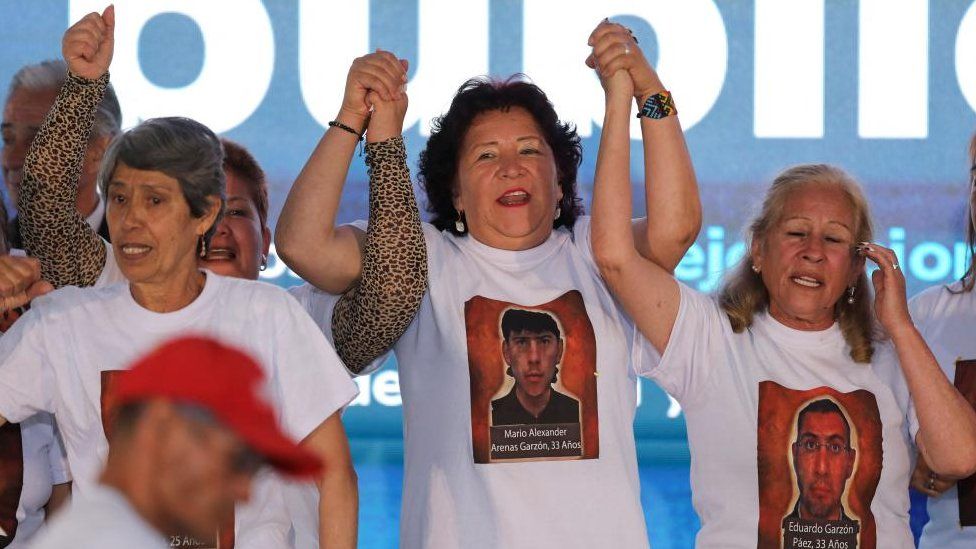-

-
-
Loading

Loading

The Colombian army has issued an apology for the killing of thousands of civilians during the country's armed conflict. A recent inquiry revealed that between 2002 and 2008, the military murdered 6,402 civilians and falsely labeled them as left-wing guerrillas in a practice known as "false positives." During a ceremony attended by mothers of the victims, the defense minister referred to the killings as "shameful." He emphasized that those who were killed were not rebels. The commander of the Colombian army acknowledged that members of the military had committed regrettable acts that should never have occurred. The victims, mainly young men from impoverished neighborhoods in and around the capital city of Bogotá, were enticed with promises of employment in rural parts of the country. Soldiers then executed them and dressed them in guerrilla attire or placed weapons in their hands. The army's intention was to create the illusion that it was winning the fight against the Revolutionary Armed Forces of Colombia (Farc) guerrilla group. Testimonies from soldiers indicated that they were pressured by superiors to increase their "kill rate" and were offered incentives such as promotions or extra time off. For years, the families of the victims have fought to uncover the truth about their loved ones. In a public event held in Bogotá, the Minister of Defense extended an apology to them. Colombia's first left-wing president and former rebel with the M-19 group, Gustavo Petro, also arrived late to the event and asked for forgiveness, equating the killings to a "genocide." The ceremony was attended by relatives of 19 young men who were executed near the Venezuelan border and falsely labeled as rebels. Each family member took the stage and mentioned the name of their murdered loved one. Some expressed disappointment that the apology had taken more than 15 years to materialize and believed that it should have come from former president Álvaro Uribe and his defense minister at the time, Juan Manuel Santos, since the majority of "false positives" occurred under their leadership. The Special Jurisdiction for Peace (JEP), a transitional court system established as part of the peace agreement between the Colombian government and Farc rebels in 2016, has been investigating these cases. More than 700 members of the security forces have provided testimonies thus far, and in August, General Mario Montoya, the former commander of the Colombian army, was accused of orchestrating 130 "false positives."